Our Library
Explore our publications, from research papers and series to educational materials, covering all aspects of conflict transformation and peace promotion.
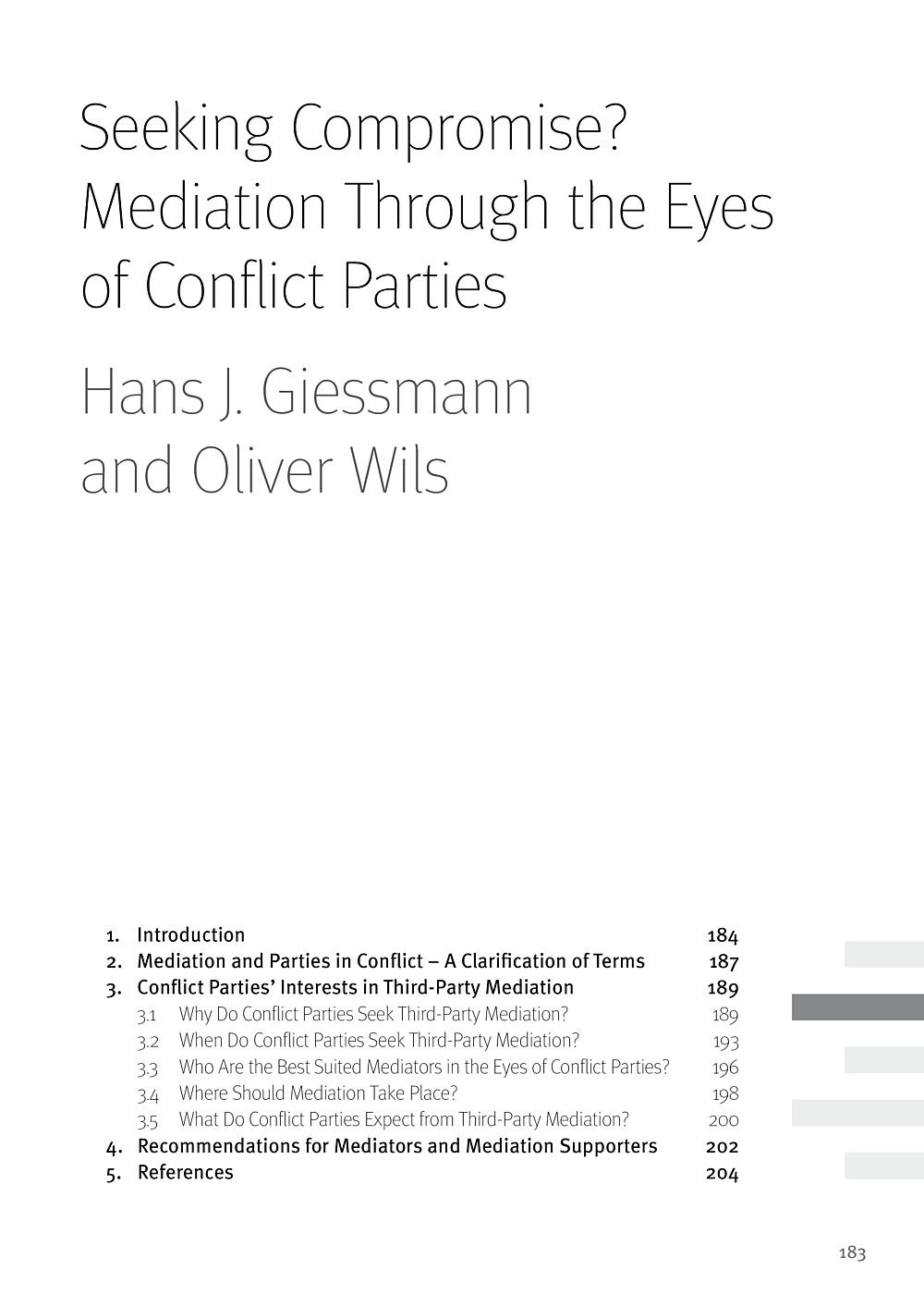
Seeking Compromise? Mediation through the Eyes of Conflict PartiesHandbook Article
- Year2011
- Author(s)Hans-Joachim Giessmann, Oliver Wils
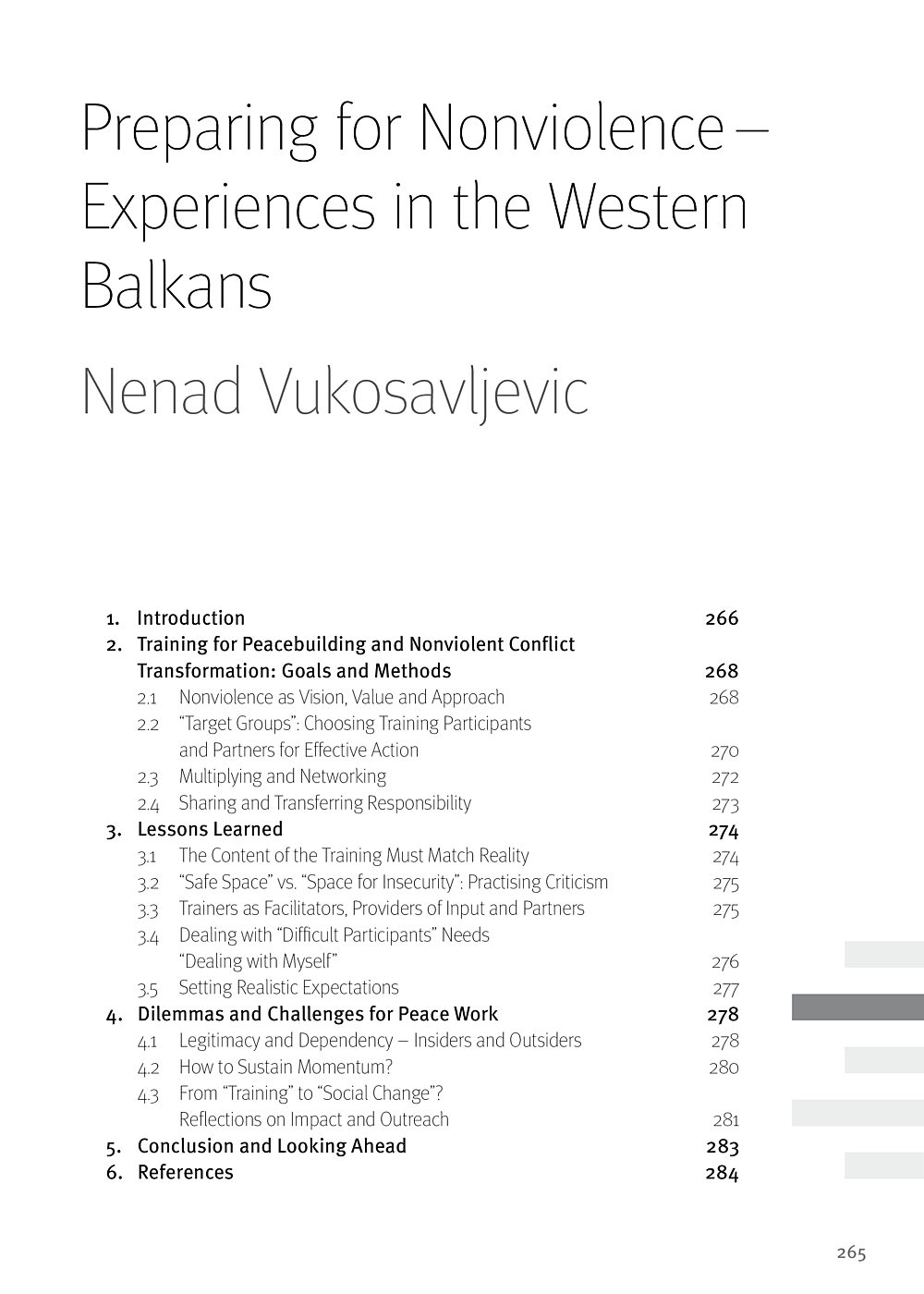
Preparing for Nonviolence – Experiences in the Western BalkansHandbook Article
- Year2011
- Author(s)Nenad Vukosavljevic

Training for Conflict Transformation – An Overview of ApproachesHandbook Article
Seeks to provide a first orientation for an audience less familiar with the field of conflict transformation and its educational possibilities. Questions raised include: who is offering training for which target audience? What are strengths and shortcomings? Are there criteria that help assess training? What challenges remain, what recommendations can be made for improving training offers? The article has an extensive reference section covering training manuals and materials, organisations, resources and analyses. (updated and revised for 2011 print edition)
- Year2011
- Author(s)Beatrix Austin
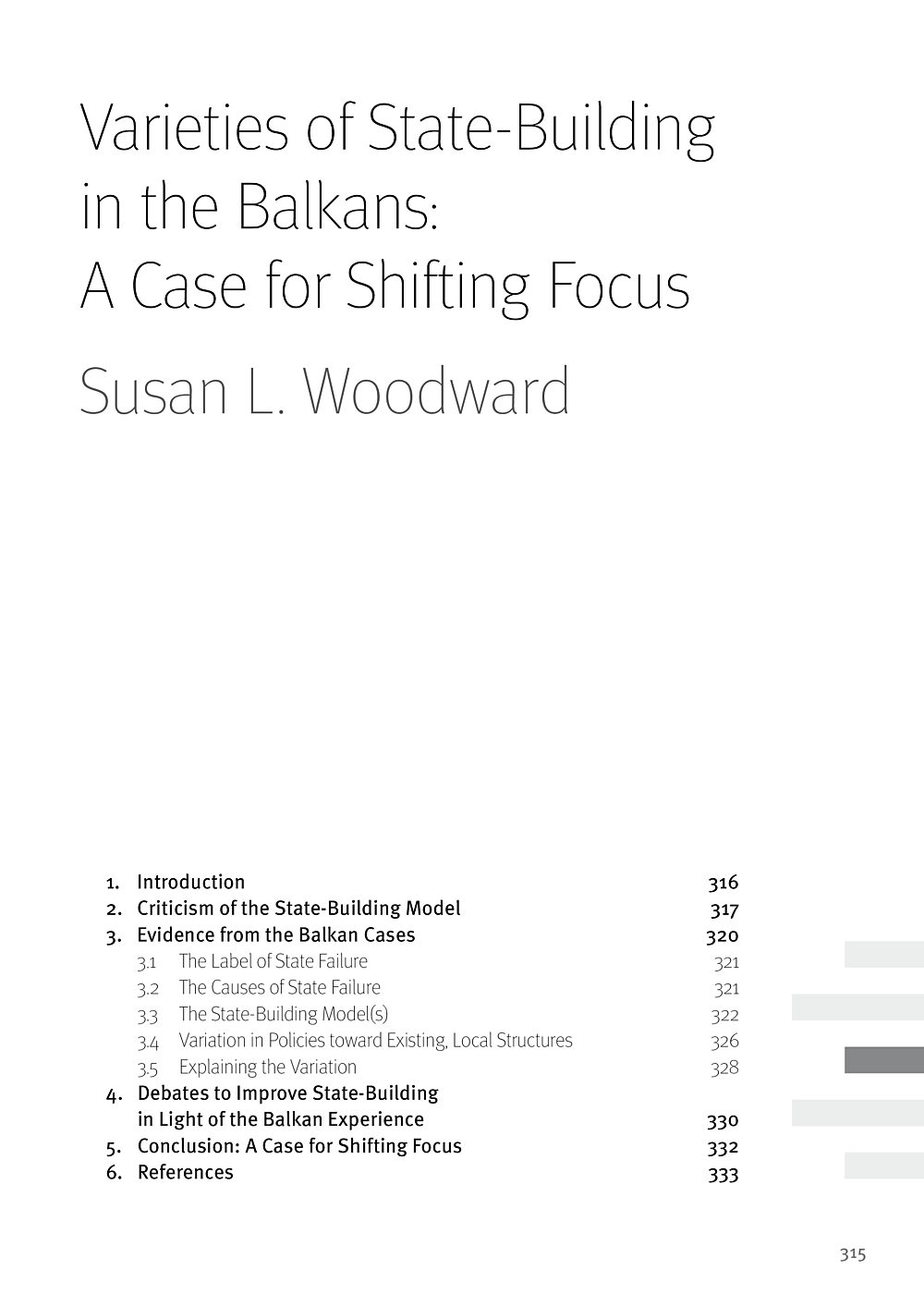
Varieties of State-Building in the Balkans: A Case for Shifting FocusHandbook Article
- Year2011
- Author(s)Susan Woodward
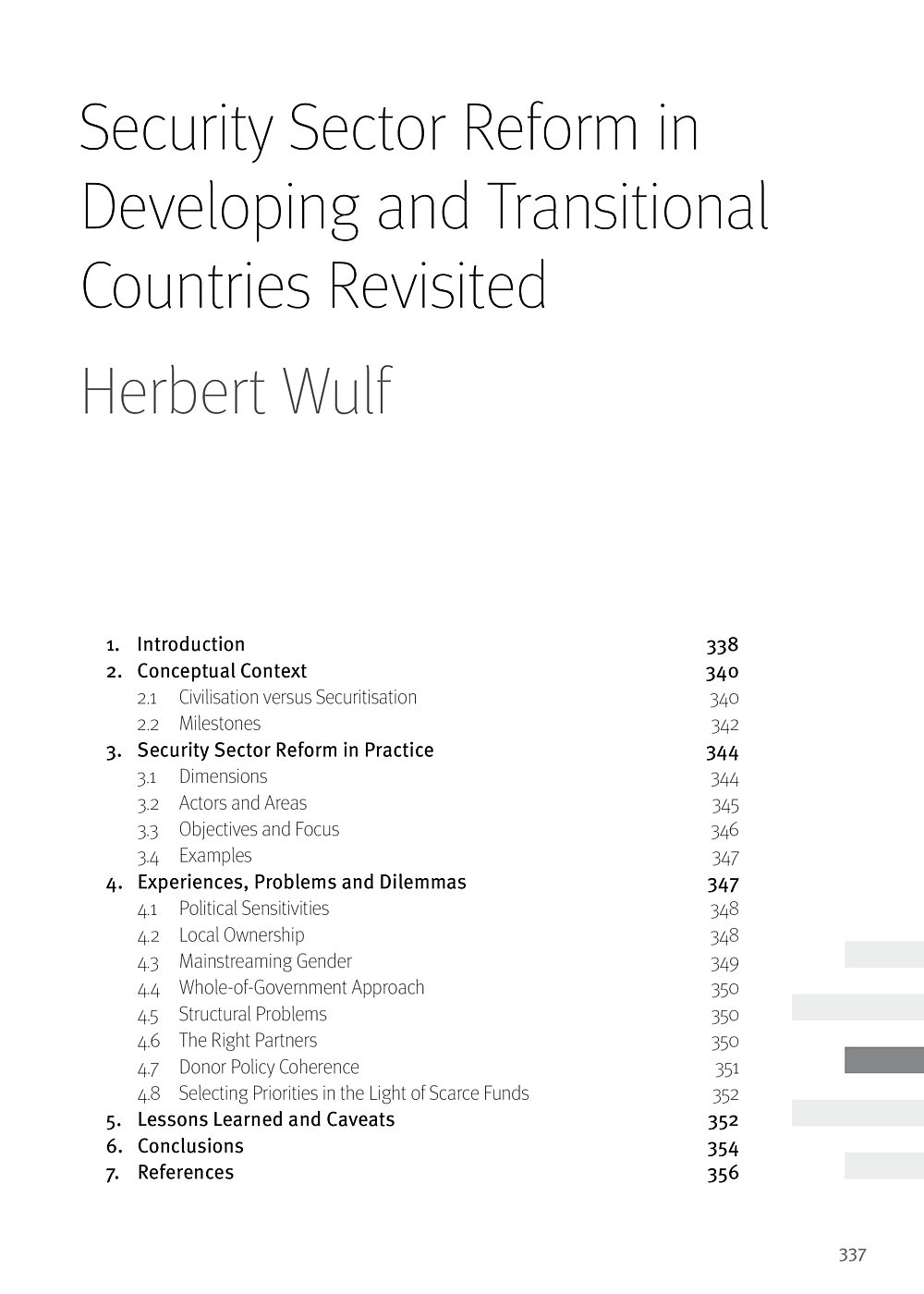
Security Sector Reform in Developing and Transitional Countries RevisitedHandbook Article
- Year2011
- Author(s)Herbert Wulf
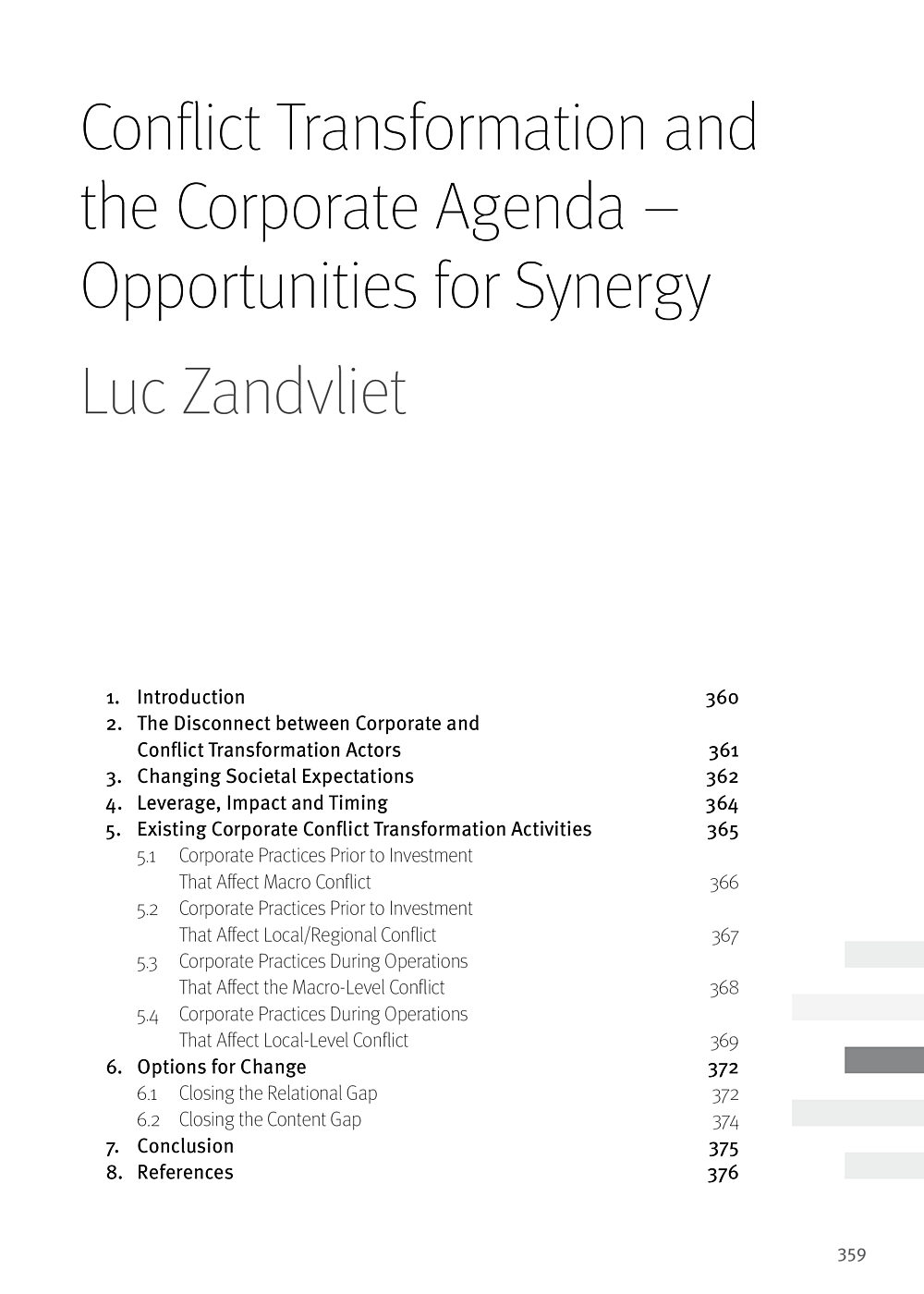
Conflict Transformation and the Corporate Agenda - Opportunities for SynergyHandbook Article
- Year2011
- Author(s)Luc Zandvliet
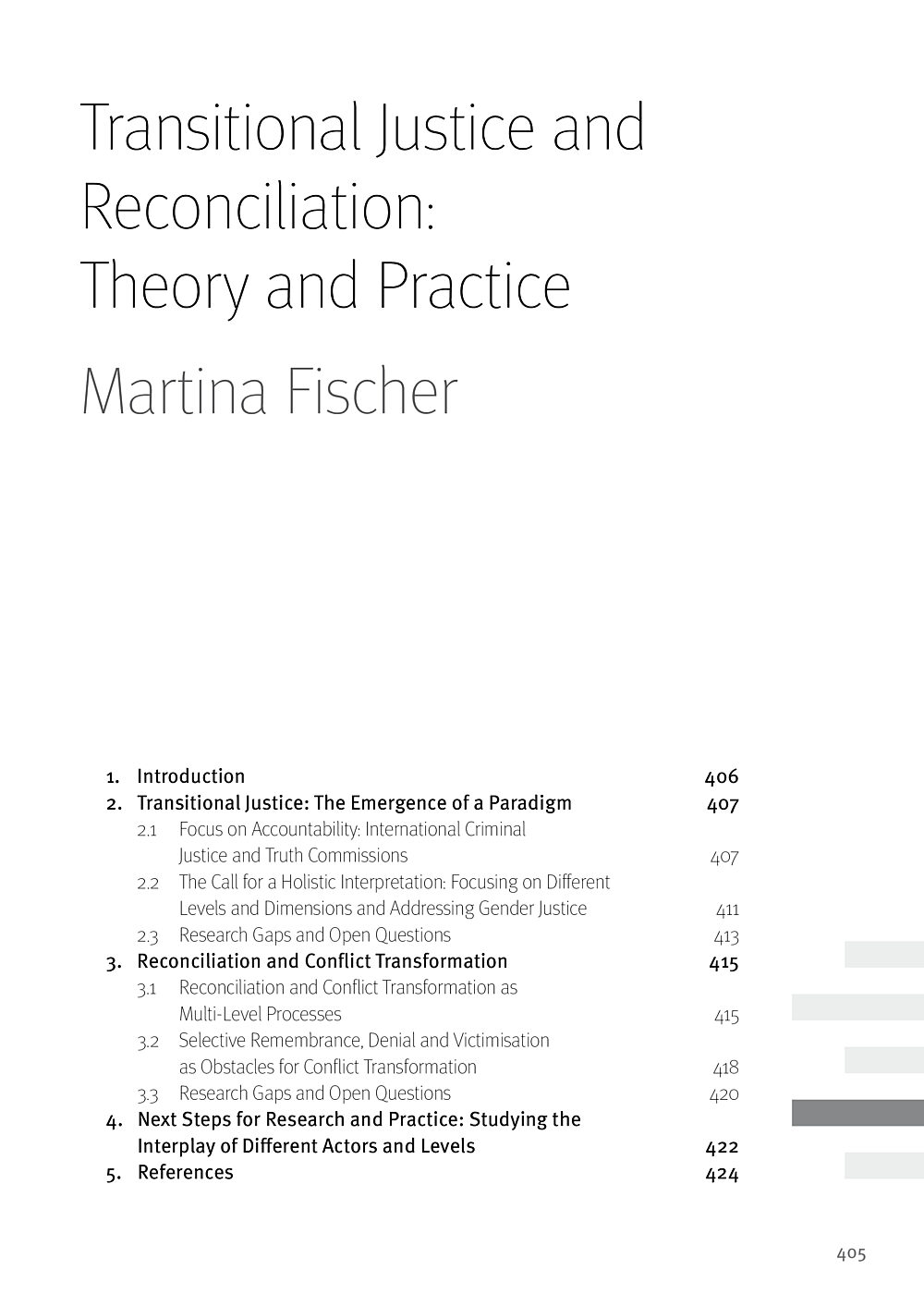
Transitional Justice and Reconciliation - Theory and PracticeHandbook Article
- Year2011
- Author(s)Martina Fischer
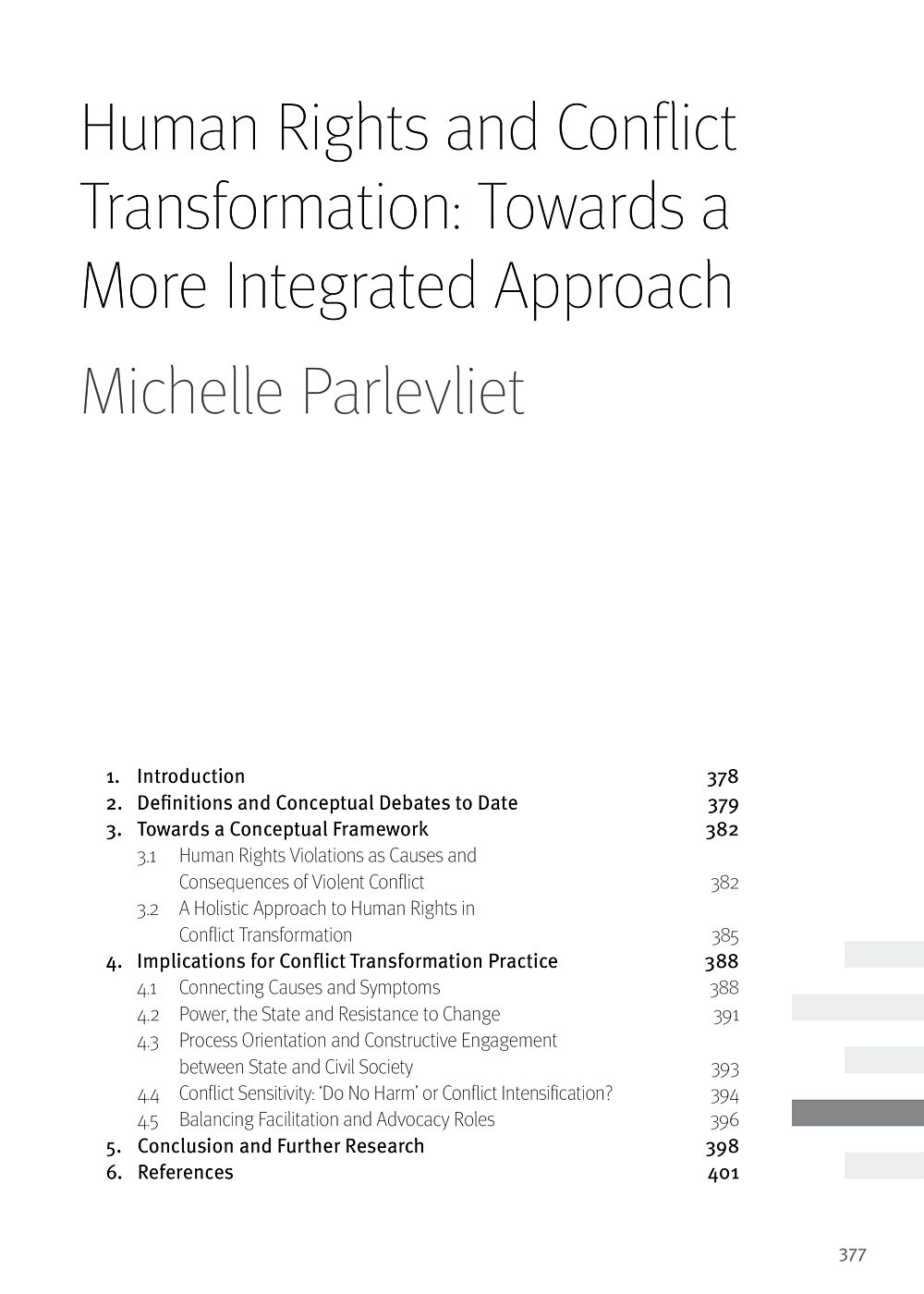
Human Rights and Conflict Transformation: Towards a More Integrated ApproachHandbook Article
- Year2011
- Author(s)Michelle Parlevliet
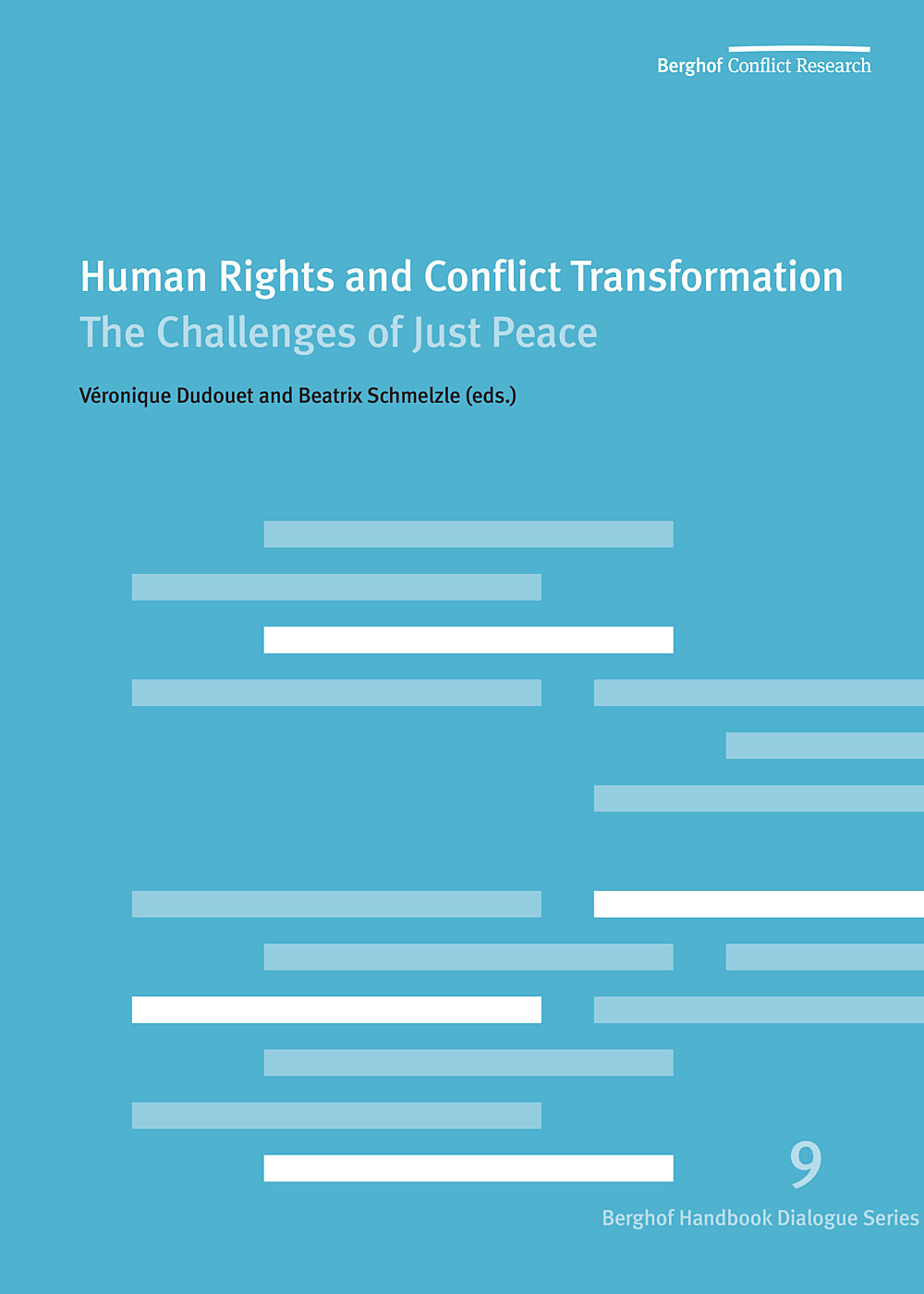
Human Rights and Conflict Transformation: The Challenges of Just PeaceHandbook Dialogue Series No. 9 - complete
- Year2010
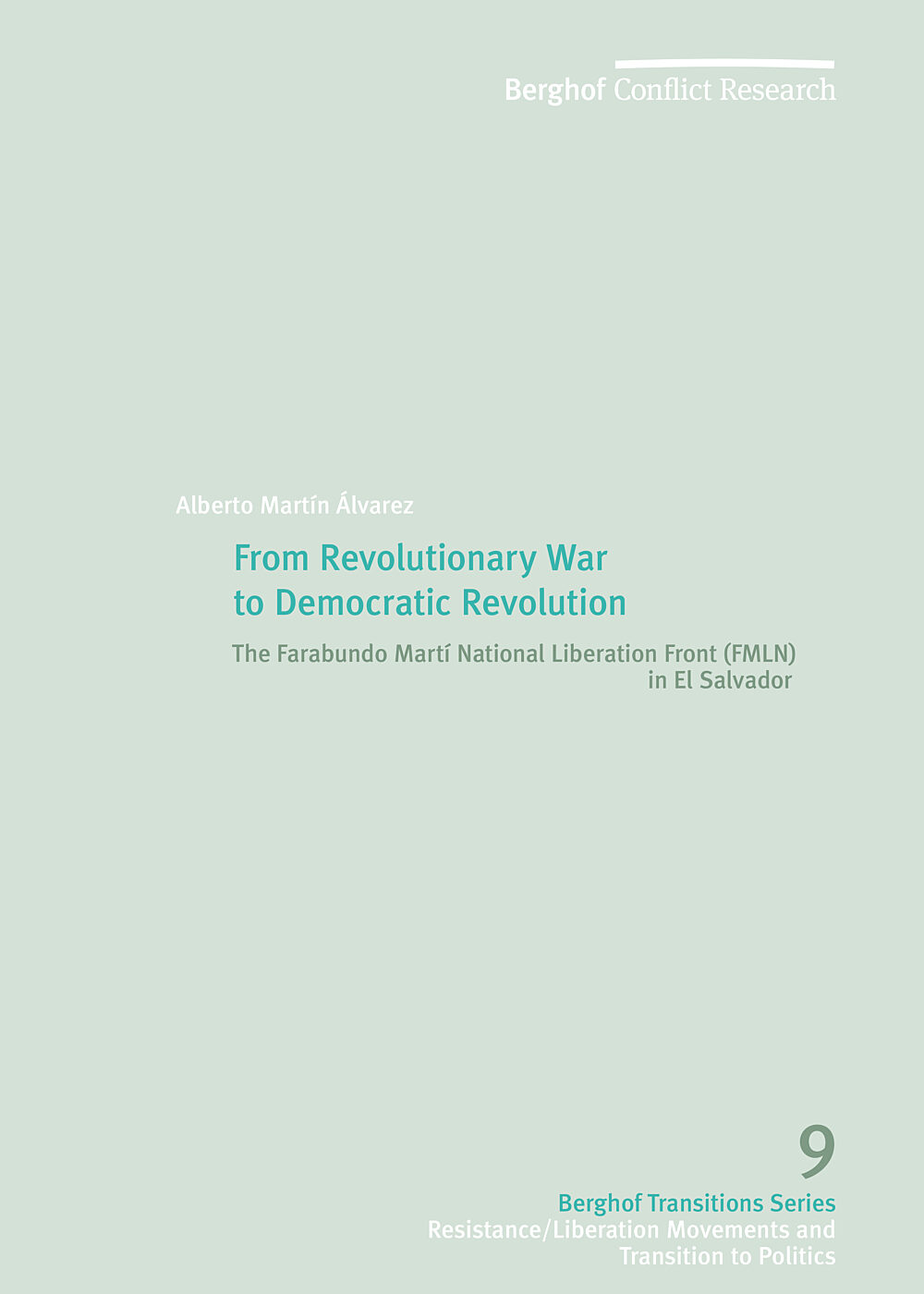
From Revolutionary War to Democratic Revolution: The Farabundo Martí National Liberation Front (FMLN) in El SalvadorTransitions Series No. 9
In the context of an authoritarian regime, controlled by the military in alliance with a powerful landowning oligarchy, Salvadoran political-military organisations sprung up throughout the 1970s. Political and economic exclusion were the basis from which a wide popular movement arose – one that was to be almost immediately confronted with massive and indiscriminate repression. Faced with the closing of arenas for political participation, huge numbers of activists joined the ranks of the guerrilla army during the late 1970s. The five Salvadoran revolutionary organisations1 created the Farabundo Martí National Liberation Front (Frente Farabundo Martí para la Liberación Nacional, FMLN) in October 1980, with the joint aim of both procuring the government’s defeat as well as creating a socialist project.
- Year2010
- Author(s)Alberto Martín Álvarez